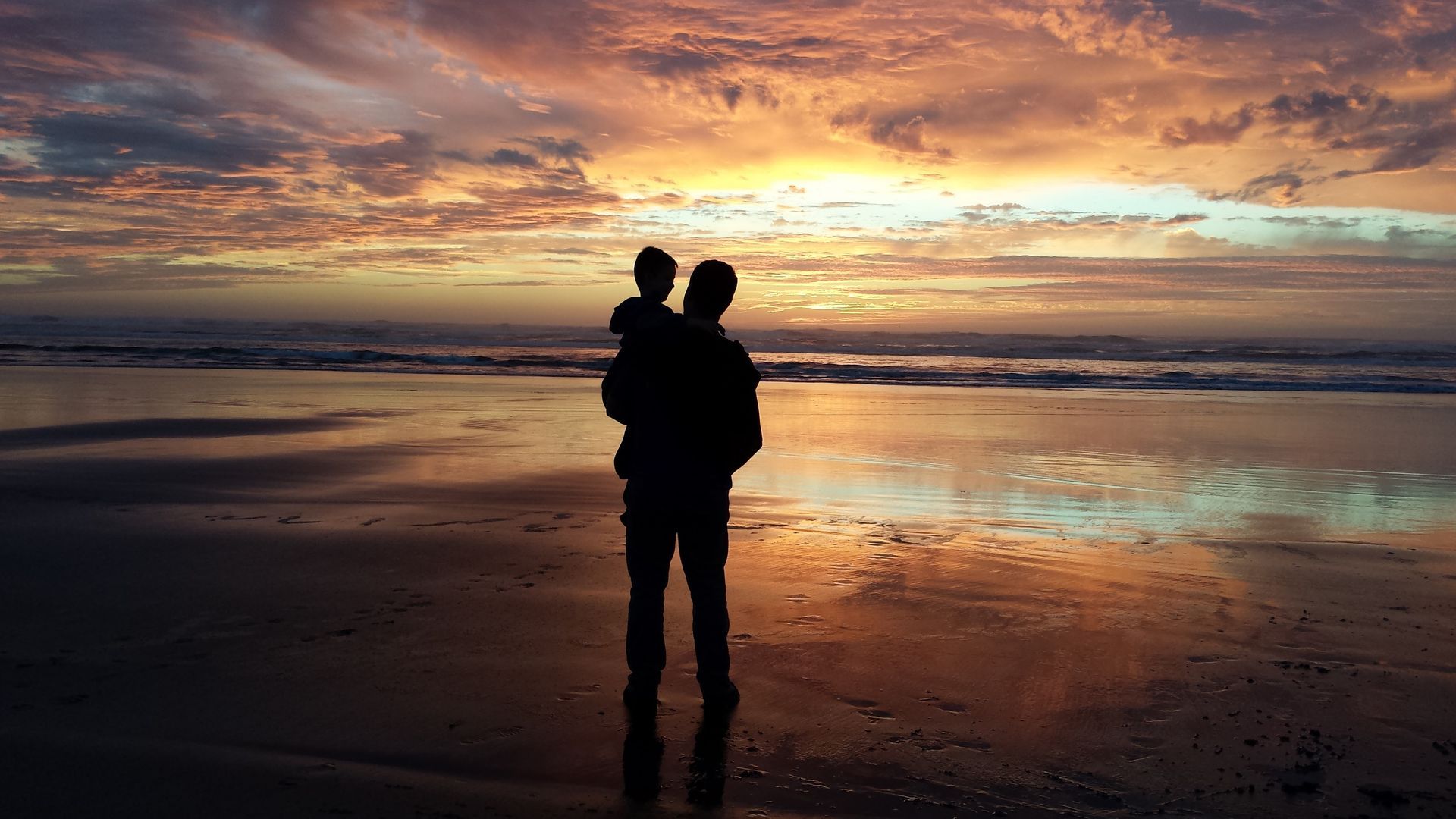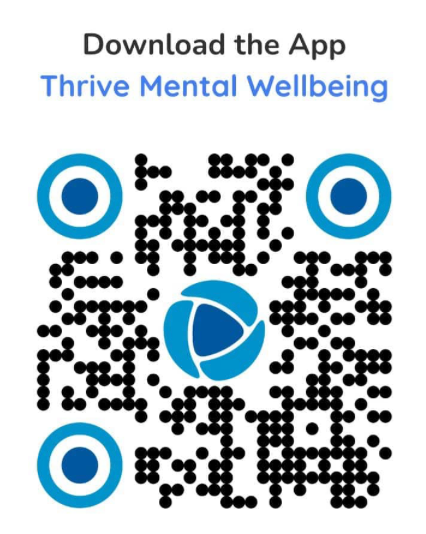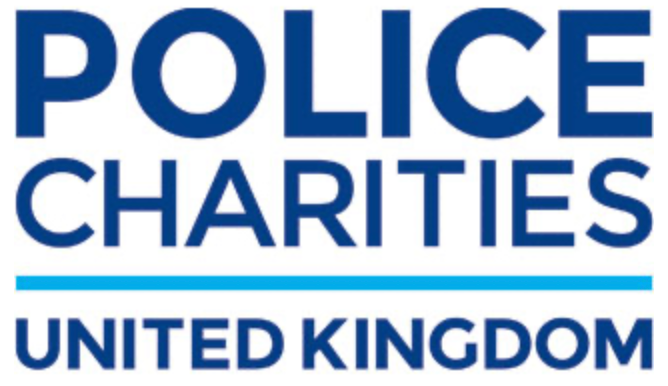Ezra's Story
"It's never a routine call ... is it?"
I felt it important to share my journey so far living with PTSD. I felt the best way for me to do this was by me answering some rhetorical questions. Thank you for taking the time to read my story...
Why did you become a Police Officer?
The cheesy cliche answer was because I wanted to help, I wanted to make a difference. I wanted to know that somebody could walk down the street and feel safe, because police officers were out there.
Do you feel like you made a difference?
I would hope that in the 6 years I was in for, I did something that was good. I think you can do good through positive interactions or engagements, dealing with the public politely and openly. As well as being professional.

But in terms of policing itself, I had the pleasure of getting involved with a few departments, and a multitude of incidents and yes, I think I did some good and made a difference; especially when I worked in neighbourhood policing.
Did you ever consider whether you had made the right decision by joining up?
There were times, where I think maybe, I burnt the candle at both ends. I exhausted myself which bought a negative mindset, however, even during the darkest times. I knew I was doing something I was passionate about, and I think I was good at what I did. It was eye opening, and sometimes the images or sounds/smells, would follow me home. But that never made me want to stop being a police officer.
Why did you end your career?
I suppose, my life changed. I think my PTSD diagnosis, helped that decision but I do think that because my personal life changed, and it had changed an awful lot from when I first started. I think my priorities re-aligned, and some experiences maybe changed me as a person. But I never lost that passion for helping others, I never lost the love for policing. I mean, I started the role as a single man with no real commitments. I now have three children, a family and a new career.
What is PTSD?
PTSD is a mental health condition. It shouldn’t be seen as a disability. For me, it enabled me to be more empathetic, more understanding and a patient person. But it manifests itself differently for different people, and I do believe that depends as well on the trauma. It can be anything from flashbacks to depression, loss of emotions to aggression. There are so many symptoms, or signals.
What's your story, what should we know?
I mean, for me, my PTSD started in 2018. I was on a routine patrol; it was around springtime. I remember it was such a hot day. I was sweating through my stab vest. I swear, it was scorching. I think I’d just finished a cigarette, and there were three of us crewed together. Simon who I was working with was looking through the mobile device for open jobs, we were out “box busting” which is literally going out and closing the open jobs for local policing which don’t require an immediate response.
He found a concern for welfare, which seemed simple. It was also no more than two minutes away from where we were too. So, I think I called up for it and got deployed to the log. We had the intention of this being a quick concern which ended up being in order, and we’d move onto the next job. We rocked up outside the house, which was near the seafront in Southend, Essex. We did the usual, got out, knocked on the door and there was no answer. We knocked again and this little older lady opened the door. We asked if the person who had called us lived here. I distinctly remember her saying “Ah, he lives upstairs. I haven’t seen him, hopefully he’s dead”.
Then with that she left the door open and disappeared back into her flat. We proceeded to the front door of the flat where the person who had called us was. It was like a bit of plywood I think, well it wasn't the most secure. We knocked a few times, and there was no answer. Given there was no answer and some concerns about the man's safety, Simon got a crowbar and just popped it open. There were stairs up to his flat behind the door. Simon was in front; Mike was second and I was behind. Simon went to the back of the flat, Mike went to the kitchen, and I went to the front room. As I started walking to the front room, the first thing I noticed was the scurrying of rats, and the tremendous, I mean the tremendous number of flies. I’d never ever seen that many flies before.
That’s when I noticed, lying on the floor, in the front room was a ponytail on the back of a head, laying in a bed on the floor. I approached, I called out maybe three or four times, repeatedly. I knew deep inside what I was walking towards. As I reached the doorframe, this overwhelming smell hit me. I leant over. I don’t want to get too graphic but... there wasn’t any identifying features on the face any longer. I will always remember at this point, calling up and saying... “This is now a death”. I then ran, I won’t lie. I ran out the door and puked everywhere in front of members of the public. This was an area where, any police presence was… an opportunity to have a look, you know? I just spewed everywhere. Anyway, so with that experience… I don't know, I suppose, it haunted me.
As in, it got to a point where this guy who, I didn’t ever know, or what he truly looked like, I ended up seeing everywhere, everywhere I went. Every time I walked up the stairs, every time I closed my eyes to sleep, every time I blinked. I dreamed about him every night, sometimes it was just recalling the events, sometimes he’d be chasing me. It left me questioning, could I have done more? I should’ve done more. This guy had been gone weeks, but in PTSD your brain doesn’t see reality. You end up blaming yourself, harming yourself further, trying to answer questions, or justifying your actions to yourself. Beating yourself up over it, again and again and again. I didn’t really have an output for these sorts of experiences either. I didn’t really say much to my friends or family about what I was going through because, well I felt like I had to deal with this. It’s for me, I went there, not them. Why would I put this burden on them? So fast forward to I think it was August or maybe September and by this point I'd had enough, I was living with it every single day. I was exhausted, and I won’t lie I felt lonely. I wasn’t really, but that’s how I felt.
So, my parents went on holiday, and I decided that was it. I’d go and end my life, I was done, I was beaten, and I just couldn’t take it anymore. I wrote a note, and I messaged Simon who was my best mate at the time. We crewed together all the time. He knew what was going to happen, and he tried to negotiate with me. But I just couldn’t, my mind was set, but I hadn’t made that conscious decision. It’s not like you wake up and decide you’re going to kill yourself... my brain had done that for me, and put me into like, autopilot. I had no control. I visited a park which I think my brain had a plan, I didn’t but my brain did. This park had some significance later in my policing career, but right then... it was just a place I went too. The park was so busy, I just ended up driving for ages. I was a mess. I think my brain went into a bit of overthinking, because I was just driving from place to place, and then I ended up driving back into the Southend. I remember pulling up at a set of traffic lights, and it was near a train station. I must be honest, I think the train station was my end game. Very few people in my life that know about my past, know that detail. I was sitting at the red light, and I just remember this police car, lights and sirens screaming in front of me. Then another, and another, and another and another. I was boxed in.
I felt this overwhelming feeling of security, a weird feeling. almost like pressure, it felt so strange. The next thing, I was taken out of my car and put into the back of a police vehicle. The side door opened, and a mental health nurse sat next to me. I literally became inconsolable at this point. I couldn't talk; I was an absolute mess. I remember her saying “Hi Ezra, I’m a few hours over my end time because I’ve been hoping that I would find you. My name’s Claire, and we’re going to sort this all out”.
Claire, I owe my life too. I won’t hide it, and Claire knows this... I had prior knowledge of her. Simon had worked with her on the mental health triage car, and she was known as “Ratchet”. She was thorough and sometimes when she needed to be ruthless triage nurse. When I realised who she was, bearing in mind I was inconsolable, I looked at her... and I think I said “Shit, I’ve heard about you”! Whilst the world fell out of my backside, I felt safe. We talked a bit whilst we were heading back to Southend, and we sat for hours talking, and having cigarettes together. I was expecting my first child Ava at the time. She was due in October, and I remember she turned to me and said “I’ll be blunt with you for a moment, your daughter will get to the age of 12 and already be with the mental health services. If you go, she’ll forever wonder why she wasn’t good enough”. I was broken already, but that broke me. It cut deep, in a way that was... constructive. I did meet with Claire after, but I haven’t seen her since for a good few years. But I’ll forever be in her debt. She saved my life that day, everybody did, I appreciate everyone's efforts. But Claire, I don’t know what she did to me, but she fixed me.
Did your experience change how you policed?
Yes of course it did. Without a doubt, it made me more understanding, and patient. Before my breakdown, I think I became a bit insensitive, and whilst I didn’t lose the passion... I lost the empathy. When I returned to operational work, six months later under quite strict guidelines, I definitely policed differently but in a good way. Like I say, whilst PTSD almost killed me it gave me an enablement, a power.
How does your PTSD affect you now?
Ahh I’m in a much better place, where I have a lot more outputs for anything. I don’t have the flashbacks that much anymore; I have the bad days. I won’t lie, sometimes I can be miserable. I don’t mean to be, but... a dream can set it off, or a smell. Roast dinner for me is a trigger, that not many people know about. But it is, like the smell, I don’t even know why. I did go to an incident a while ago, in that park, it was a suicide, which was so tragic. He was only young, and the circumstances around it, just stayed with me. Being in that park too, which had dense woodland, that was another situation where I just couldn’t stop beating myself. I knew that park, why couldn’t I get there just two minutes quicker. I did reach out to the family, about a year later and apologised. But that for me was so close to home that I think, it helped push me towards leaving.
Would you go back?
I don’t believe in saying never. I would maybe think about it, but not right now. Right now, I want to focus at home. If that makes sense?
Why do you want to tell your story?
I suppose to normalize, PTSD. Especially within public service, let's be honest its rife. The support is there, but it’s nowhere near as good or as funded as what it should be. Through releasing my story locally, through a new article, I had another Police Officer reach out to me about how he was feeling. I suppose if I can achieve that again through telling my story via Thin Blue Line UK and get somebody to reach out to somebody for help, rather than suffering in silence, it has been a success.
It’s so important to get the message out there, to get the wheels turning to talk about mental health, talk without judgement, without fear of being put behind a desk or treated differently. However, the public also need to see that police officers, paramedics, fire officers whoever... they think, they are also human, and they feel the same way as any other person.
The difference is, they get sent towards it, when everyone else has the choice to run away.

Thank you for taking the time to read Ezra's Story...
Have you felt like this after dealing with an incident on the thin blue line and feel you may need some support?
Here at Thin Blue Line UK, we can help, working with THRIVE we offer mental health and positive wellbeing support through an in-app therapy service.
This is available, free of charge, to all Police Officers across the United Kingdom, so they can quickly access help when they need it and confidentially speaking to a qualified therapist.



